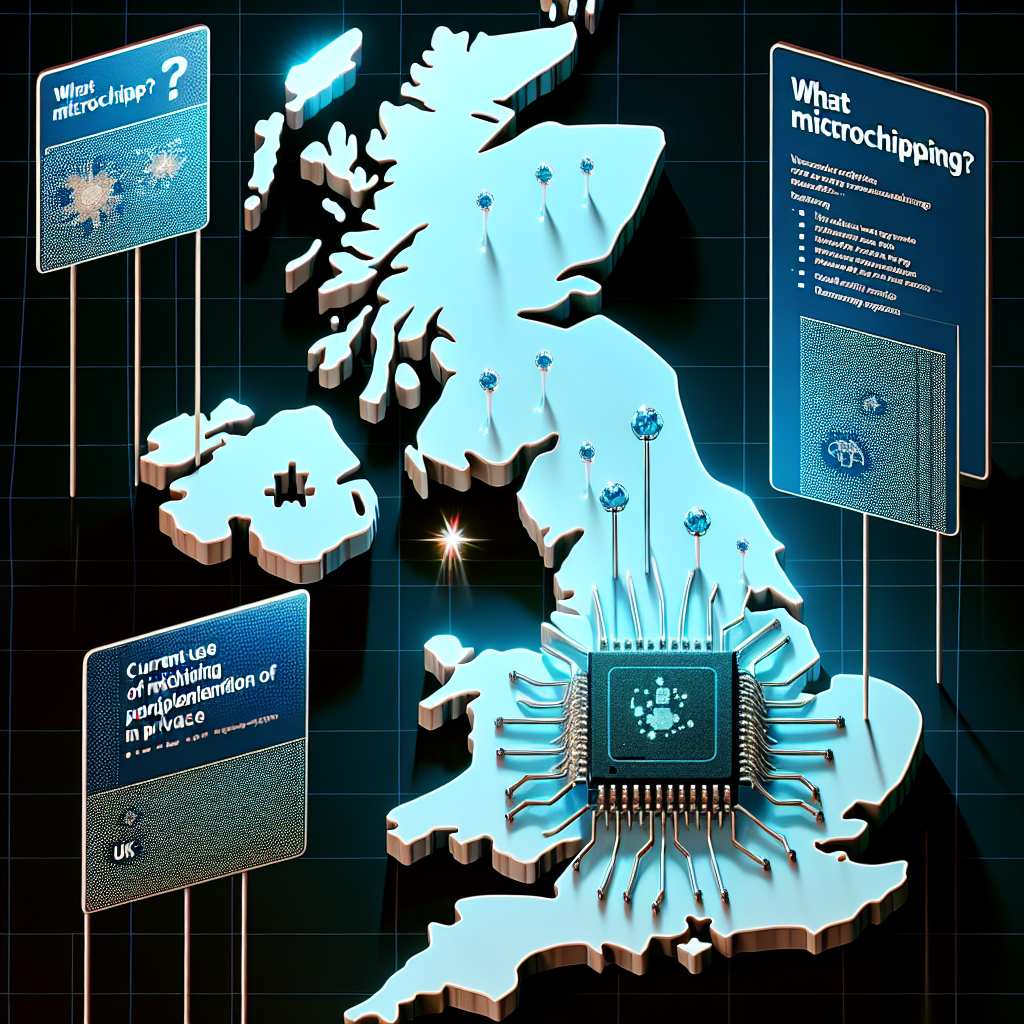![]()
🔬 The Microchip Revolution: Empowering Efficiency or Invading Privacy? 🛂
Imagine living in a world where microchip implants are much more than a mere tool; they are a consistently debated topic in the realm of ethical employment practices. The world is already witnessing a stirring discourse, with microchip technology controlling the dynamics of the workforce management, and offering innovative solutions to complex workplace issues. So, the question here is, can these microchip technologies serve as a persistent source of workplace efficiency? Can an individual’s privacy be maintained while achieving enhanced control and optimization in a business setting? This blog post sheds light on these pressing questions and offers an insightful examination through the eyes of employees and employers alike.
🎯 The Foundation of the Microchip Debate: Autonomy vs. Surveillance
The inception of microchip implants in the workplace is fraught with controversy and ethical concerns. On one hand, proponents argue the immense benefits of convenience and security—imagine unlocking doors, logging into systems, or making transactions with just a wave of a hand. On the other hand, adversaries sound the alarms on privacy invasion and an Orwellian future where an employer’s oversight knows no bounds—where personal freedoms are curtailed for the sake of company utility. 
These initial discourses set the stage for a tug-of-war between innovation and individual rights, exploring the boundaries of technology’s reach into our personal lives. The intense debate and public scrutiny that accompanies the advent of workplace microchipping serve to question and perhaps redefine the principles upon which worker autonomy stands.
💡 The Ethical Crossroads: Trusting the Process or Questioning the Motive
The dialogue surrounding microchip technology in the workplace speaks volumes about the ethics in play. Those in favor tout the streamlining of processes and the reduction of mundane tasks, heralding a new age of workplace efficacy. It’s the turning point where the line between work and personal space blurs, raising ethical questions that demand immediate attention and rigorous analysis.
At the heart of the ethical dilemma is trust—whether an employee can truly trust an employer not to abuse the power that comes with such invasive technology. It provokes thoughts on the ownership of one’s own biometric data and the very essence of consent in an age where opting out could mean missing out on employment opportunities.
📈 The Value Proposition: Evaluating Worth Beyond Monitoring
For microchipping to gain acceptance, the narrative must transition from surveillance to empowerment. Employers are thus challenged to present a value proposition that extends beyond the convenience for administrative tasks.
Companies must be transparent in not only the implementation of microchips but also in how they intend to manage the data, enforce policies, and safeguard against overreach. Strategies may involve establishing clear boundaries, opting for voluntary programs, and presenting tangible benefits that positively impact the employee experience, emphasizing a workforce empowered by technology—not subjugated by it.
👁️🗨️ The Transparency Trail: Laying the Groundwork for Informed Decisions
Amidst the debates over the virtues and vices of microchipping employees, advocating for transparency becomes pivotal. The lessons learned from the initial discussions underscore the necessity for open channels of communication between employers and employees, outlining not only the potential for enhanced operational efficiency but also the safeguards in place to protect workers’ rights.
Transparency must extend to the potential risks as well. Companies should not only highlight the advancements but also be candid about what the technology could mean in the worst-case scenarios. This foresight allows employees to make well-informed decisions about their participation in such initiatives.
🚀 Navigating the Ethical Frontier: The Road Ahead for Workplace Microchips
Looking towards the future, the discussions on microchipping in the workplace will undoubtedly continue. As we embark on this technological journey, the focus on ethical practices and the sanctity of the individual’s personal domain will take precedence.
The roadmap for ethical microchipping practices may include universal standards, legislative governance, and a global dialogue on the implications for the future of work. Organizations will likely explore increasingly creative implementations of technology, all the while balancing the high-wire act of innovation against the preservation of individual freedoms.
🔄 From Controversy to Common Ground: Microchipping as a Mutual Milestone
Concluding, the journey through the microchipping debate reveals much about our collective values regarding technology and privacy. Within this narrative lies a testament to our resilience as a society, our ability to adapt, and the power of ethical consideration in shaping the future.
We are reminded of the role vigilance plays in ensuring technologies like microchip implants serve to enhance—rather than encroach upon—our lives. The potential for workplace microchips to foster organizational efficiencies must be weighed carefully against the sanctity of personal sovereignty. What emerges from the narrative is the essence of a visionary approach—one that harnesses the transformative power of technology for mutual benefit, without diminishing the individual’s right to privacy.
Are you ready to join the conversation and redefine the parameters of privacy and efficiency within your organization? Connect with me on [LinkedIn] to dive deeper into the promise and perils of workplace microchipping and to reflect upon the impact of emergent technologies on our professional lives. 🚀🌟
